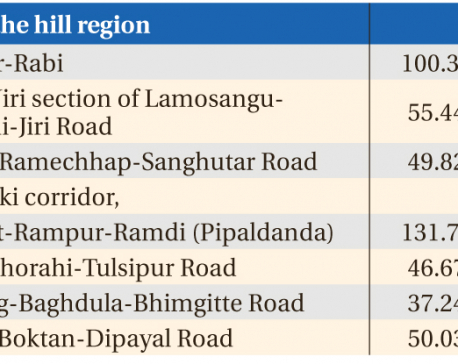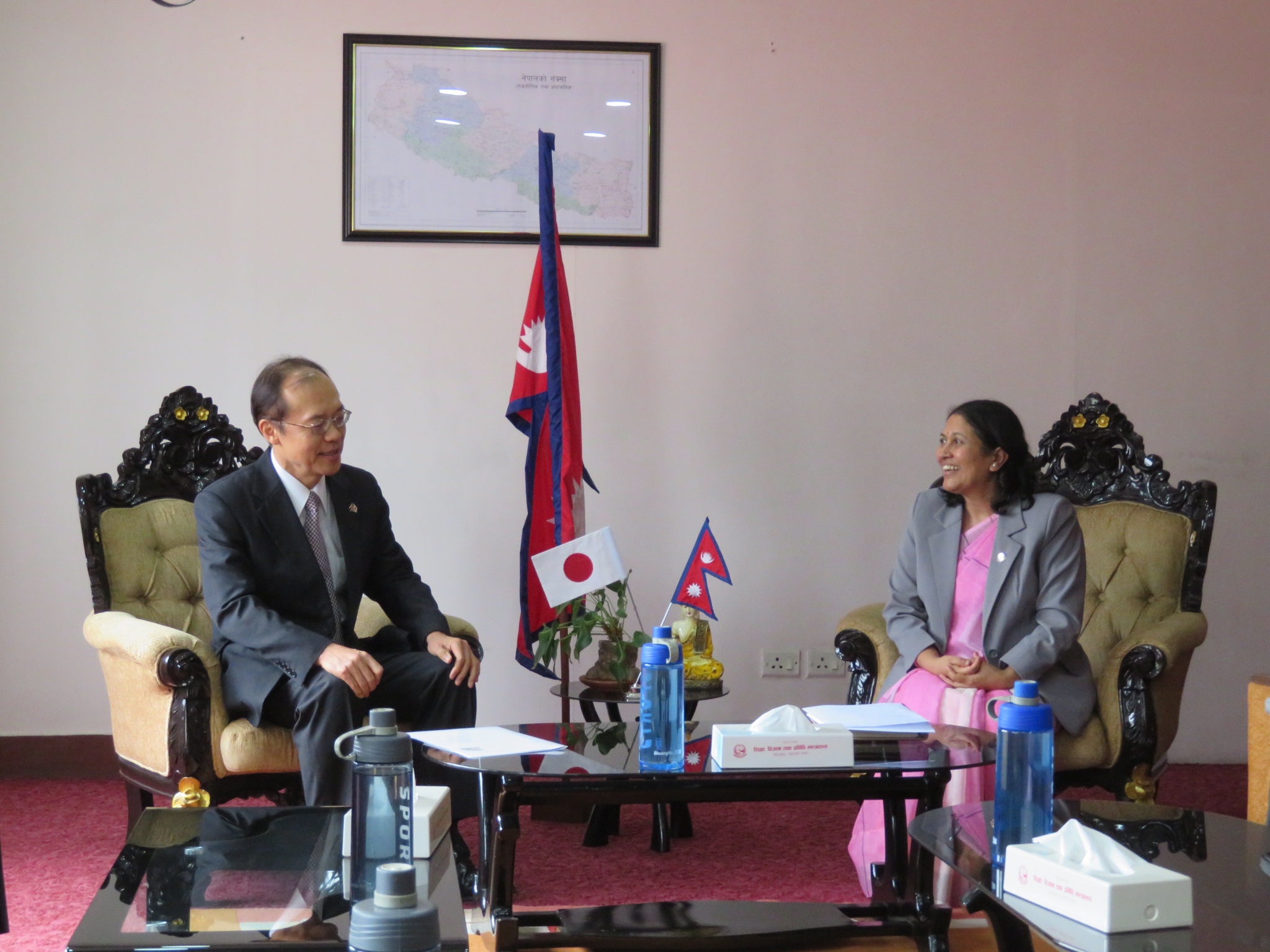
OR
Government amends VAT rule to improve compliance
Published On: June 4, 2019 11:01 AM NPT By: Republica | @RepublicaNepal
Contractors and suppliers of public entities to pay half of VAT in advance, business community unhappy
KATHMANDU, June 4: To improve value-added tax (VAT) compliance and ensure recovery of the VAT paid by the government to contractors or suppliers of public entities, the government has amended VAT Rules.
The amendment has put a provision that contractors or suppliers to any public entities should pay half of VAT in advance against each financial transactions they make with other parties.
The contractors and suppliers can only count the difference – the VAT amount they collect and they pay – at the end of each month and settle the payment, according to an amendment in the Value Added Tax Rules which was circulated to the business community by the Inland Revenue Office on Friday.
This amendment has restricted these contractors and suppliers from using the VAT amount for at least 25 days, like other firms do, before footing the VAT on every 25th day of the Nepali month.
The government, by amending the rule, aims at increasing VAT compliance and discourage the trend of pocketing VAT amount by contractors and suppliers, who sometimes remain out of contact for years.
Government officials say this move is for recovering the tax the government pays, spending taxpayer’s money, in paying for contracts and procurement of supplies.
Former Finance Secretary and author of ‘A Study on Performance of Value Added Tax in Nepal’ Shant Raj Subedi argued that the measure is reasonable as it is taken to increase compliance and make sure that VAT paid by the government comes back into the government treasury.
This seems against the fundamental principle of VAT as it requires paying the difference amount, but the law is appropriate in the current context as there is a growing trend of suppliers and contractors who collect VAT from the government do not pay back, according to Subedi.
However, this provision has left business houses unhappy, who state that it has increased the cost of doing business. They claim that they may be at a loss if their supplies and services are not sold immediately, when they are required to foot the VAT immediately.
“This has at least two major negative impacts in the business community as it makes dearth of working capital and creates difficulty in keeping record of the suppliers and contractors paying the VAT in advance,” said Pashupati Murarka, former president of the Federation of Nepalese Chambers of Commerce and Industry. “On the other hand, we may have high volume of stocks which results in low VAT collection, leading us to face further crisis of capital.”
Murarka added that they may have to undergo a long cumbersome process of reclaiming VAT credit. Any firm or business registered under VAT can claim VAT credit, which is the difference between the VAT amount they pay while purchasing goods and the amount they collect from their customers.
Meanwhile, the government has also lifted the VAT credit provided on consumption of diesel. “The blanket move of cancelling VAT credit on consumption of diesel has directly hit the manufacturing sector, and it is sure to hike the unit cost of production,” Murarka said.
The government has however imposed new VAT on transportation services to bring them into the tax net. The business community is also skeptical of this move and argue that imposing VAT on an unorganized sector may only create disturbances in the smooth supply of goods.
You May Like This

Jumla district administration keeping close tabs on defaulting contractors, consumers
JUMLA, Jun 9: District administration has said that it would not let anybody including consumers committees and defaulting contractors go... Read More...

Tax-free no more: Saudi Arabia, UAE to roll out VAT in 2018
DUBAI, Dec 27: Saudi Arabia and the United Arab Emirates, which have long lured foreign workers with the promise of... Read More...

Nepal for selecting contractors for road projects on its own
KATHMANDU, May 1: Nepal has refused a proposal that authorizes India to select contractors for implementing different road and bridge projects... Read More...











Just In
- Nepal at high risk of Chandipura virus
- Japanese envoy calls on Minister Bhattarai, discusses further enhancing exchange through education between Japan and Nepal
- Heavy rainfall likely in Bagmati and Sudurpaschim provinces
- Bangladesh protest leaders taken from hospital by police
- Challenges Confronting the New Coalition
- NRB introduces cautiously flexible measures to address ongoing slowdown in various economic sectors
- Forced Covid-19 cremations: is it too late for redemption?
- NRB to provide collateral-free loans to foreign employment seekers







Leave A Comment